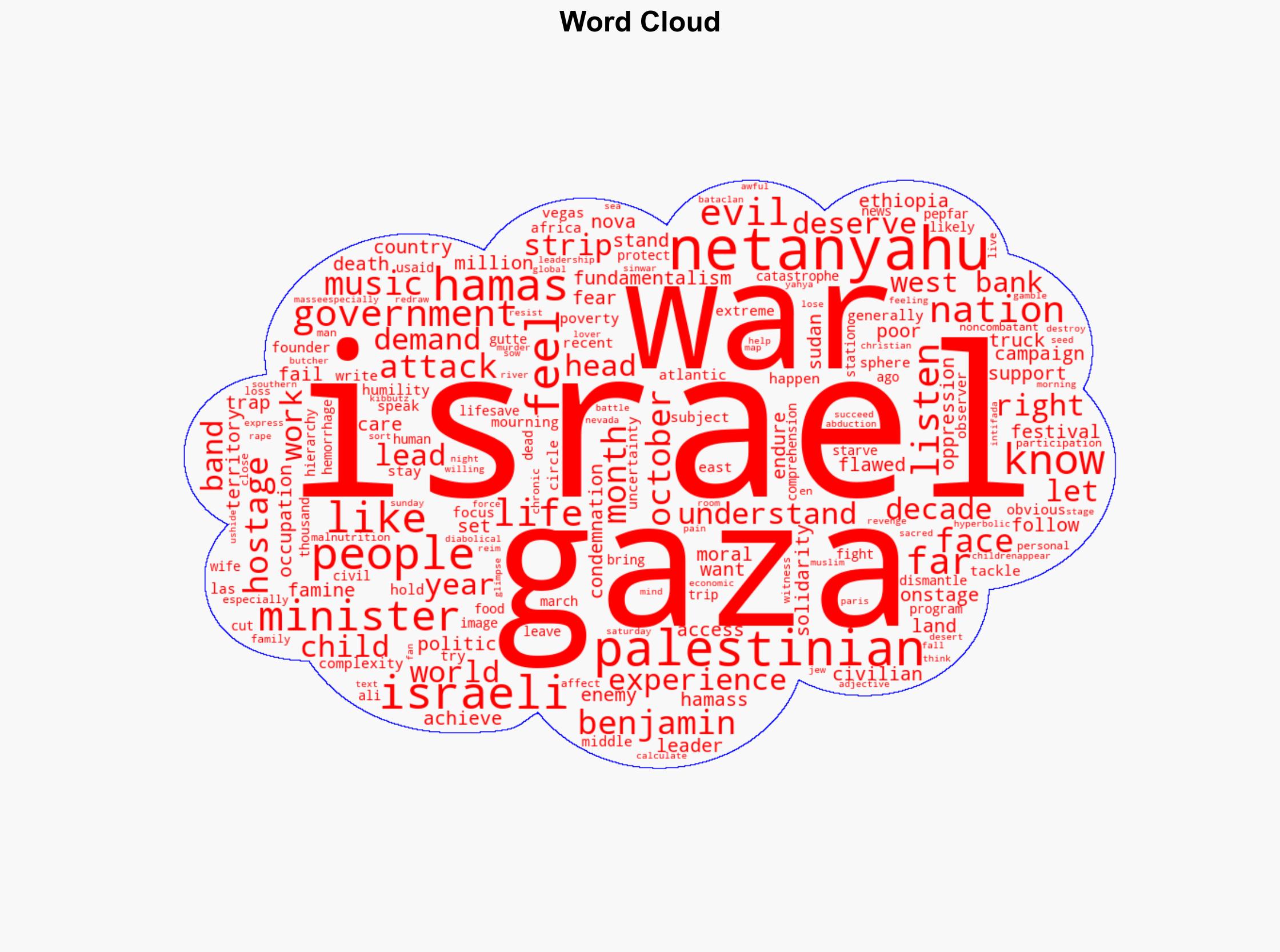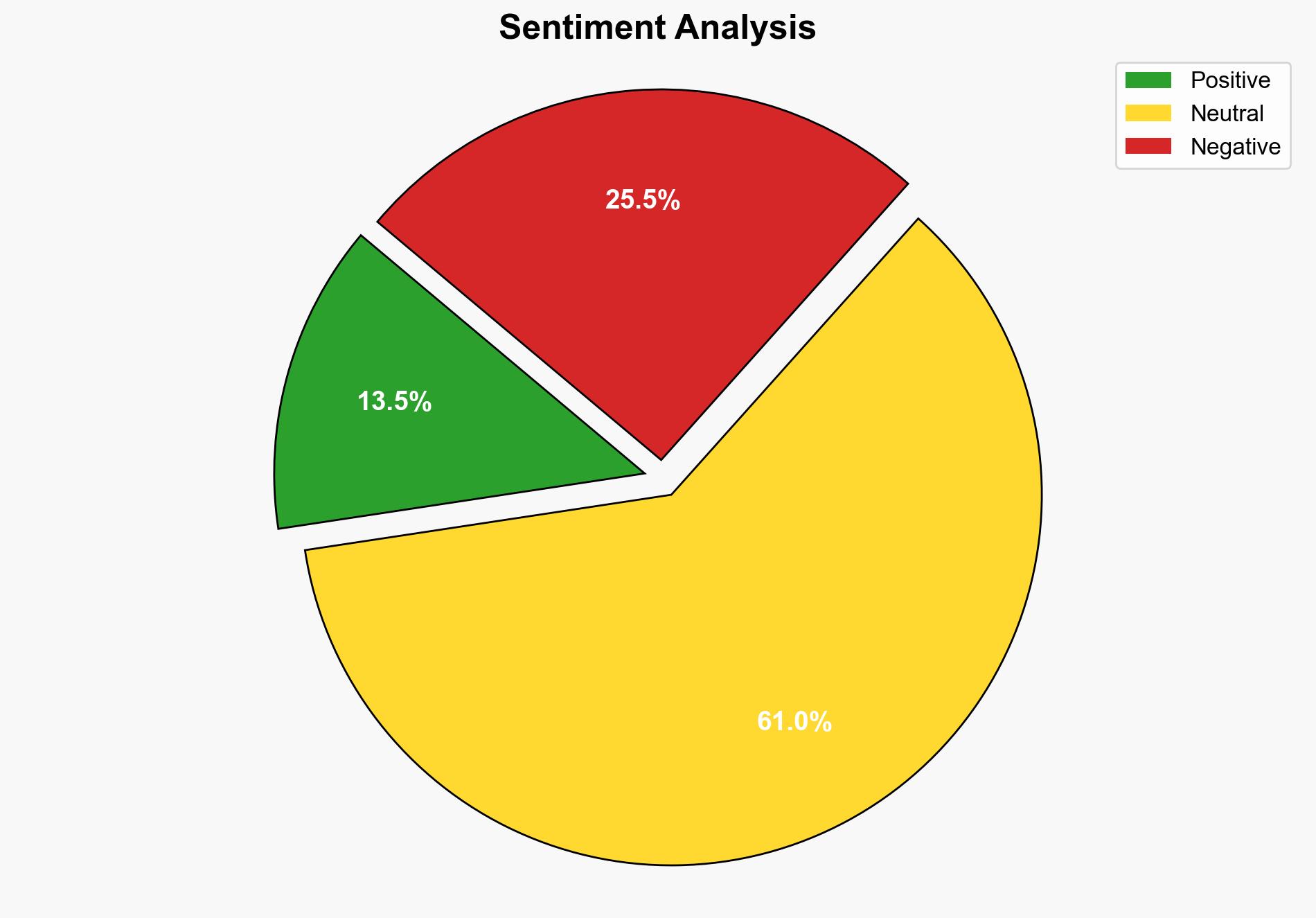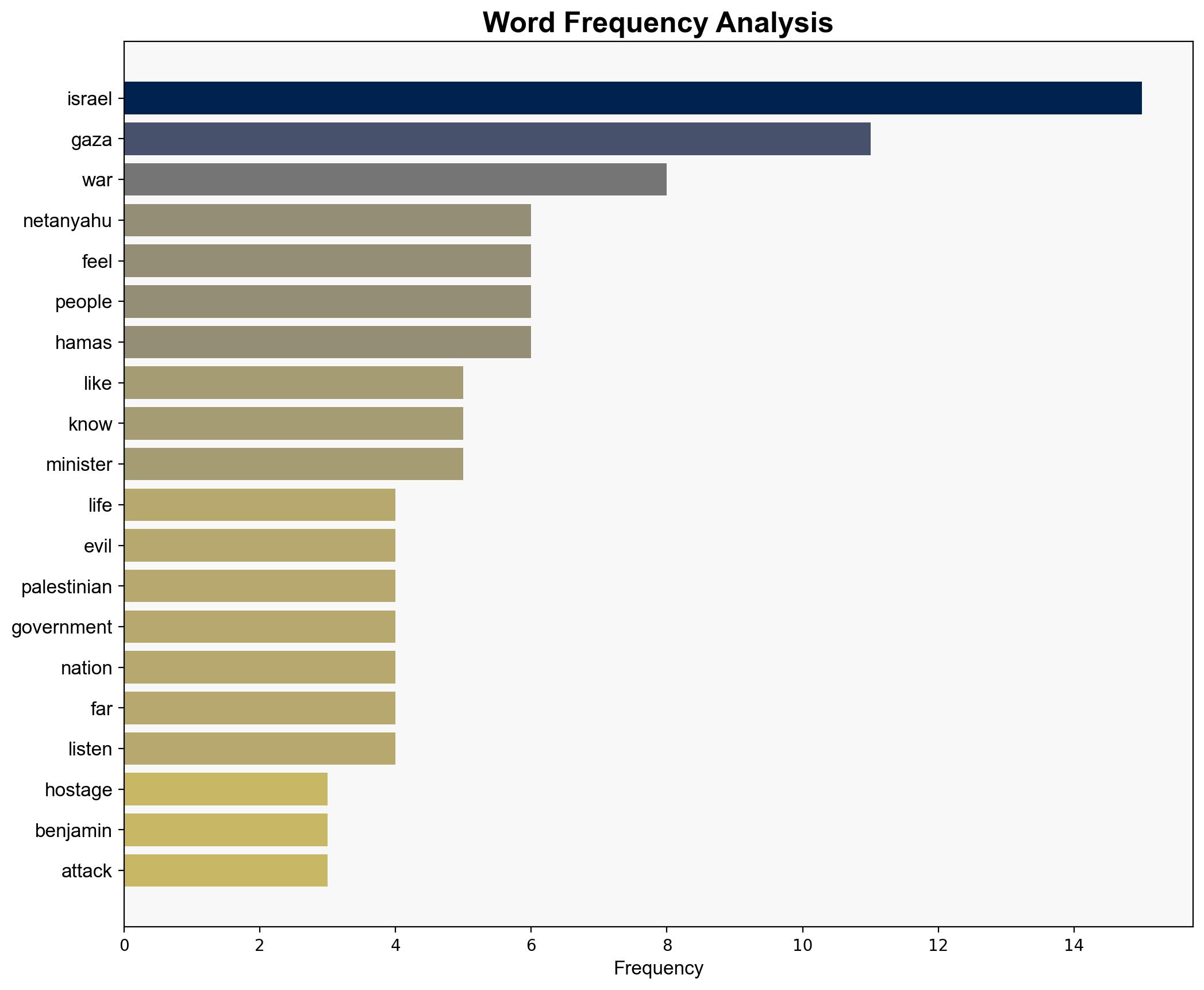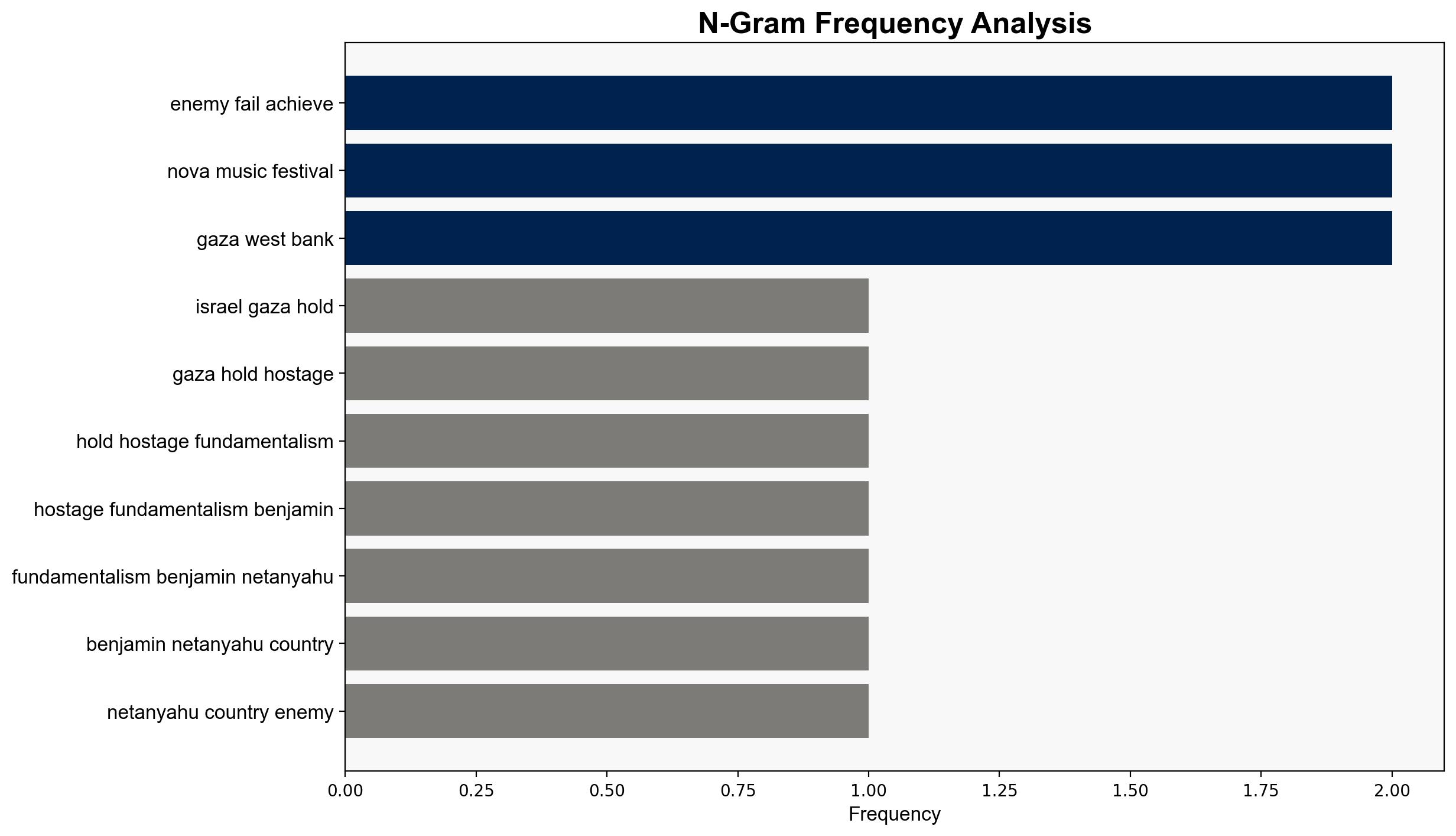Israel and Gaza Held Hostage by Fundamentalism – The Atlantic
Published on: 2025-08-11
Intelligence Report: Israel and Gaza Held Hostage by Fundamentalism – The Atlantic
1. BLUF (Bottom Line Up Front)
The ongoing conflict between Israel and Gaza is deeply rooted in fundamentalism and historical grievances, with both sides engaging in actions that exacerbate tensions. The most supported hypothesis suggests that the current escalation is a strategic maneuver by Hamas to provoke a disproportionate response from Israel, thereby gaining international sympathy and support. Confidence level: Moderate. Recommended action: Engage in diplomatic efforts to de-escalate tensions and promote dialogue between the parties.
2. Competing Hypotheses
1. **Hamas Provocation Hypothesis**: Hamas is deliberately provoking Israel into a disproportionate military response to gain international sympathy and support, aiming to shift the narrative in favor of Palestinian rights and resistance against occupation.
2. **Israeli Defensive Hypothesis**: Israel’s actions are primarily defensive, aimed at neutralizing threats from Hamas and ensuring national security, with any disproportionate response being a consequence of the complexity and intensity of the conflict.
3. Key Assumptions and Red Flags
– **Assumptions**: The Hamas Provocation Hypothesis assumes that Hamas is willing to sacrifice civilian lives for strategic gains. The Israeli Defensive Hypothesis assumes that Israel’s military actions are primarily defensive and not driven by expansionist motives.
– **Red Flags**: The narrative of each side may be biased, with potential exaggeration of threats or downplaying of civilian casualties. Inconsistent data regarding the scale of civilian impact and the strategic objectives of each side.
4. Implications and Strategic Risks
The conflict risks escalating into a broader regional confrontation, potentially drawing in neighboring countries and impacting global energy markets. Cybersecurity threats may increase as both sides leverage digital warfare. Geopolitical alliances could shift, with increased polarization in international forums. Psychological impacts on civilian populations could lead to long-term trauma and radicalization.
5. Recommendations and Outlook
- Engage in multilateral diplomatic efforts to broker a ceasefire and initiate peace talks.
- Monitor cyber activities to prevent escalation into digital warfare.
- Scenario-based projections:
- Best: Successful ceasefire and initiation of peace negotiations.
- Worst: Escalation into a broader regional conflict.
- Most Likely: Continued sporadic violence with intermittent international mediation efforts.
6. Key Individuals and Entities
– Benjamin Netanyahu
– Yahya Sinwar
7. Thematic Tags
national security threats, cybersecurity, counter-terrorism, regional focus





